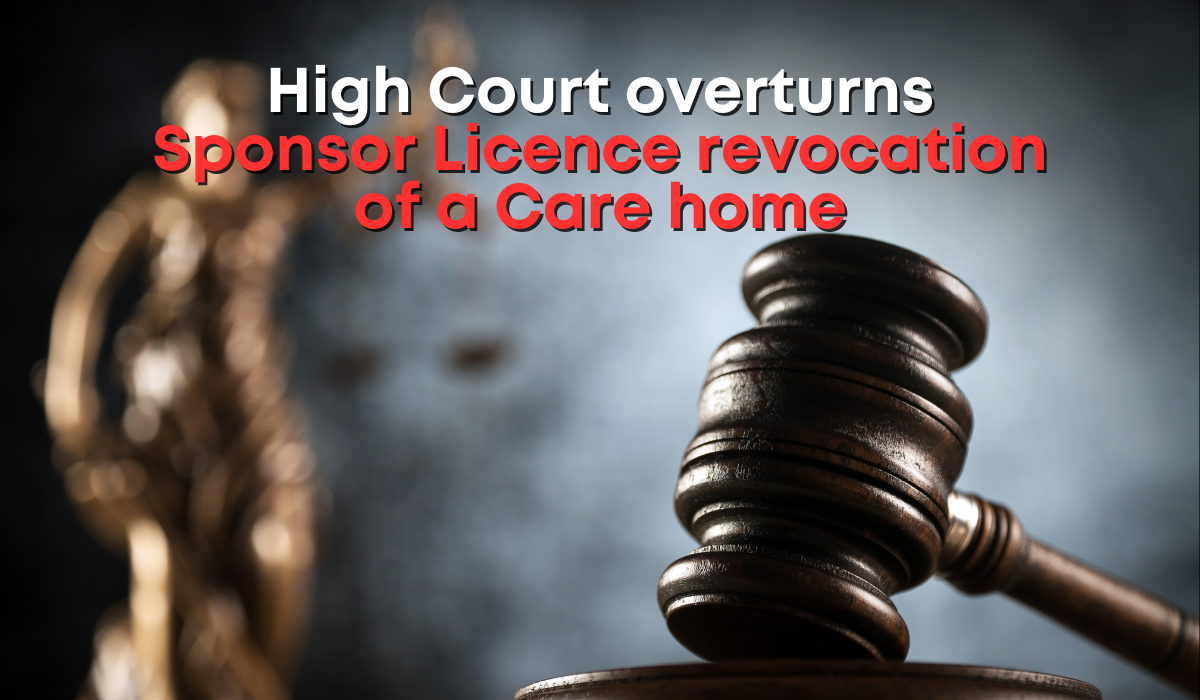In a recent High Court ruling, a major decision was made regarding the revocation of a care home operator’s sponsor licence. The case of Supporting Care Ltd vs. Secretary of State for the Home Department [2024] EWHC 68 (Admin) serves as a critical legal precedent for UK businesses employing sponsored workers, particularly in the care sector.
Background of the case: Supporting Care Ltd, employing 68 sponsored workers, faced revocation of its skilled worker sponsor licence in June 2023. The Home Office audit revealed discrepancies between the job duties of a senior care worker and the description on her certificate of sponsorship.
Judicial review and grounds for appeal: The care home operator sought judicial review of the decision. The appeal succeeded on the grounds that the Home Office failed to conduct a fully reasoned assessment of all relevant considerations before deciding to revoke the licence.
Key judicial findings:
- The High Court found ambiguity in the Home Office’s policy guidance, which, while stating mandatory revocation under certain circumstances, also implies discretion. This interpretation played a significant role in the court’s decision.
- The court emphasised the importance of a proportionate and reasonable assessment in revocation decisions. Particularly when non-compliance issues concern only a single employee out of a larger workforce.
Lessons learned from the decision:
- Contrast with Prestwick Care Ltd case: Unlike the earlier case of Prestwick Care Ltd, which had multiple breaches involving several workers, Supporting Care’s issue revolved around one worker. This distinction was crucial in the court’s decision to view the revocation as disproportionate.
- The importance of compliance: The judgment underscores the necessity for sponsors to adhere strictly to their duties and responsibilities. While the High Court’s approach to proportionality offers some reassurance, maintaining compliance is paramount to avoid legal disputes.
This judgment highlights the nuanced application of sponsor licence policies by the Home Office and the courts. It demonstrates that while the Home Office can initiate licence revocation for breaches involving even a single worker, there is room for judicial interpretation based on the proportionality and reasonableness of each case. For businesses holding sponsor licences, this case reinforces the importance of rigorous compliance with Home Office guidelines and the potential recourse to judicial review when facing licence revocation. The case also signifies the courts’ willingness to scrutinise the proportionality of the Home Office’s decisions, offering a precedent for future disputes in this domain.
Get in touch: For a comprehensive understanding of your options or queries on UK immigration matters, reach out to GigaLegal at 02074067654 or click here to book a no-obligation consultation with an immigration expert.


